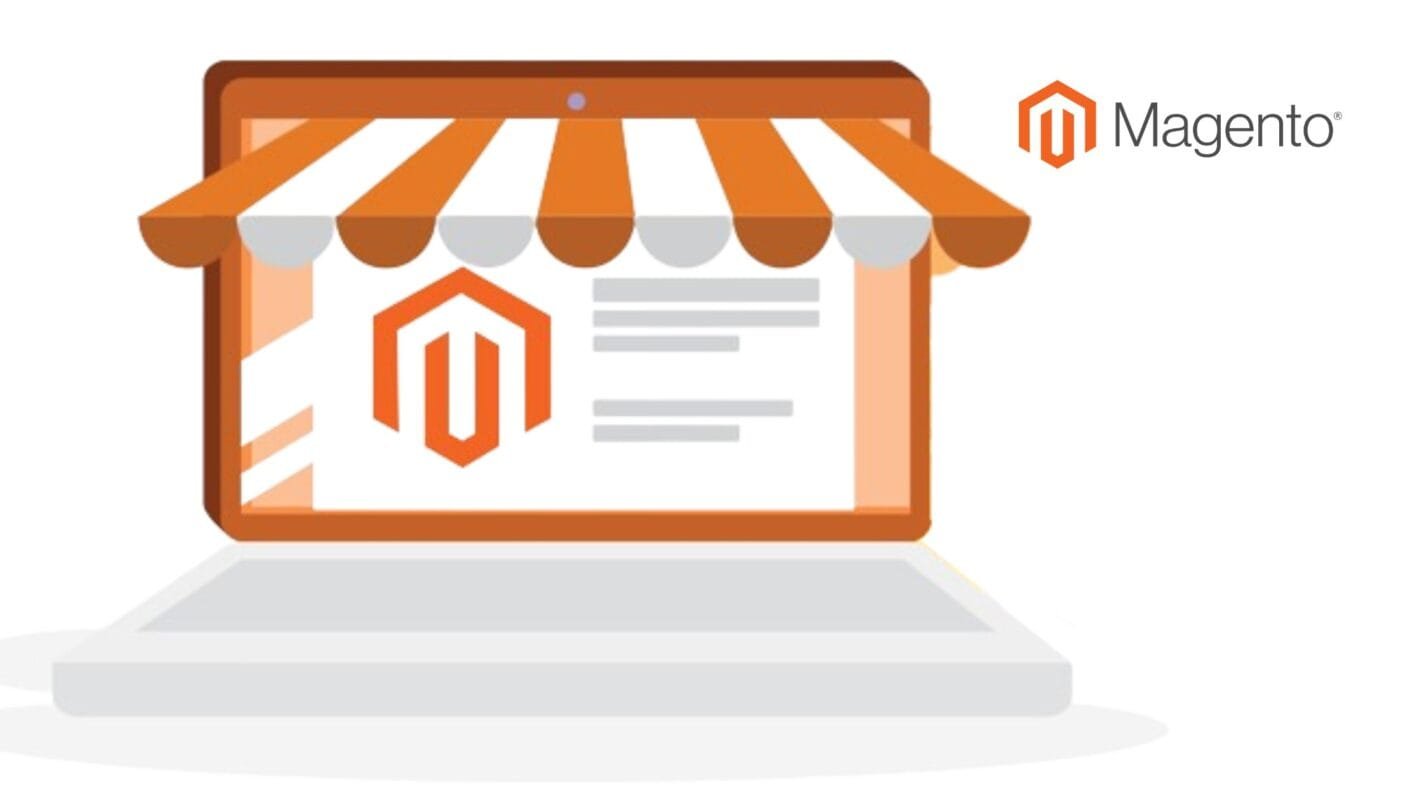ZenCart & OpenCart: Tailoring Open-Source Solutions for Modern Stores

In today’s fast-evolving digital marketplace, building and managing an online store has never been more accessible—or more competitive. Entrepreneurs and established businesses alike are increasingly turning to open-source solutions to power their ecommerce websites. Platforms like ZenCart and OpenCart offer flexible, robust, and cost-effective solutions that empower business owners to create a business website that stands out. This in-depth blog explores how these two platforms compare, how they can be tailored to meet your business needs, and why hiring the right talent—from front end web developers to expert shopify developers—is crucial for your ecommerce success.
The Rise of Open-Source Ecommerce Platforms
Open-source software has revolutionized the way businesses approach ecommerce. Unlike proprietary solutions, open-source platforms offer full access to source code, enabling developers and designers to modify and enhance the software to suit specific business requirements. This level of customization makes it possible to develop cool ecommerce websites that are both unique and scalable.
With an increasing demand for website and application development, businesses are finding that open-source platforms not only reduce upfront costs but also offer long-term flexibility and performance optimization. Whether you’re looking to create a business website from scratch or enhance an existing one, the ability to integrate cutting-edge features—such as responsive design, mobile-first layouts, and conversion rate optimization—gives you a competitive edge in a crowded online marketplace.
Understanding the Open-Source Advantage
Customization and Scalability
Open-source ecommerce platforms like ZenCart and OpenCart are highly customizable. Their flexible architecture means you can integrate various plugins, themes, and additional functionalities without being tied to rigid vendor ecosystems. This is particularly important if you want to make an app for website or develop a solution that scales with your business growth.
For businesses aiming to stand out with cool ecommerce websites, customization is key. Whether you’re employing a freelance website designer or hiring a dedicated web designer, having an open-source solution allows you to tailor every aspect of your online store to match your brand’s identity and customer expectations.
Cost-Effectiveness and Community Support
Another significant advantage of these platforms is cost-effectiveness. Without recurring licensing fees, businesses can allocate more of their budget toward hiring a designer, hiring web developers, or investing in website design and SEO services. Moreover, both ZenCart and OpenCart benefit from vibrant communities that contribute plugins, modules, and support forums. This community-driven approach ensures continuous updates, security patches, and innovative features that keep your ecommerce site on the cutting edge.
A Deep Dive into ZenCart
Overview and Core Features
ZenCart is one of the pioneers in open-source ecommerce. Initially built to address the needs of small to medium-sized businesses, ZenCart has grown into a mature platform known for its stability and rich feature set. Its core strengths include:
- Extensive Customization: ZenCart’s architecture allows developers to tailor the store’s functionality and design extensively. This is particularly beneficial if you need to create a business website that aligns perfectly with your brand’s aesthetics.
- Robust Extensions: With a wide range of plugins and modules available, you can extend the capabilities of your online store. Whether you require advanced inventory management, integrated payment gateways, or marketing tools, ZenCart offers flexibility.
- SEO and Marketing Tools: Built-in SEO tools help optimize your site for search engines, ensuring that your ecommerce site design stands out in a competitive market. Coupled with website design and SEO services, ZenCart can be a powerful engine for digital marketing.
Integrating ZenCart with Your Development Team
To fully leverage ZenCart’s potential, it’s essential to have a skilled team behind the scenes. This includes:
- Front End Web Developers: Their expertise is critical for implementing custom themes and ensuring that your store is responsive and visually appealing.
- Application Developers: For more complex functionalities, application developers can integrate third-party applications or create custom modules.
- Hire Web Developers and Freelance Web Developers: Whether you opt for in-house professionals or freelance website freelance developers, the goal is to achieve seamless web application development that enhances user experience.
If you’re considering hiring a designer or hiring a web designer to work alongside your development team, ZenCart offers a flexible platform that supports creative customization without compromising performance.
Exploring OpenCart
Key Features and User-Friendly Design
OpenCart has carved out a niche for itself by offering a user-friendly interface coupled with a powerful set of features that make it an attractive option for both new and established online retailers. Some of its notable features include:
- Intuitive Dashboard: OpenCart’s admin panel is designed for ease of use, enabling even non-technical users to manage products, orders, and customer data with ease.
- Extensible Module System: Like ZenCart, OpenCart supports numerous extensions and themes, allowing you to customize your store without starting from scratch.
- Multi-Store Functionality: OpenCart allows you to run multiple stores from a single backend, making it an excellent choice for businesses looking to expand their reach across different markets or product lines.
Customization and Performance Optimization
OpenCart’s modular system makes it particularly suited for businesses that want to focus on ecommerce site design with a strong emphasis on performance and scalability. Some key aspects include:
- SEO Best Practices: OpenCart includes several built-in SEO features that help improve your site’s search engine ranking. This is critical when you invest in website design and SEO services to drive organic traffic.
- Responsive Themes: In an era where mobile commerce is on the rise, OpenCart’s responsive themes ensure that your online store looks great on any device. This aligns with trending keywords like mobile-first design and responsive design.
- Easy Integration: For businesses looking to make an app for website or incorporate innovative technologies, OpenCart’s open architecture facilitates smooth integration with third-party services and APIs.
Support and Community Engagement
The OpenCart community is robust and ever-growing. Forums, tutorials, and community-contributed extensions provide a wealth of knowledge and support. Whether you’re a seasoned developer or a novice business owner, the community can be a valuable resource in navigating challenges and optimizing your store’s performance.
ZenCart vs. OpenCart: A Comparative Analysis
When deciding between ZenCart and OpenCart, it’s important to evaluate your specific business needs. Here’s a detailed comparison to help you make an informed decision:
Ease of Use and Learning Curve
- ZenCart: While ZenCart offers deep customization, its interface can be more challenging for beginners. This may require hiring experienced web developers or freelance website designers to get the most out of the platform.
- OpenCart: Known for its user-friendly dashboard, OpenCart is generally easier to manage for those who are less technically inclined. The intuitive design makes it easier to create a business website with minimal training.
Customization and Flexibility
- ZenCart: Offers extensive customization options that are ideal for businesses looking for a unique, tailored solution. Whether you need to hire website developers or freelance web developers, ZenCart provides the flexibility required for bespoke ecommerce site design.
- OpenCart: Also highly customizable, OpenCart shines with its modular approach and easy extension integration. It’s a strong contender for businesses that value a balance between functionality and ease of customization.
Performance and Scalability
- ZenCart: With a focus on robust performance, ZenCart is well-suited for growing businesses that anticipate high traffic volumes. Its infrastructure supports scalability, ensuring that your ecommerce website can evolve alongside your business.
- OpenCart: Similarly, OpenCart is designed to handle the demands of growing ecommerce platforms. Its efficient performance optimization features make it a reliable choice for businesses that prioritize scalability and long-term growth.
SEO and Marketing Capabilities
Both platforms offer built-in SEO features, but there are nuances:
- ZenCart: Provides a comprehensive suite of SEO tools, which, when combined with professional website design and SEO services, can significantly enhance your online presence.
- OpenCart: Equally competitive in terms of SEO, OpenCart’s features ensure that your site remains search engine friendly, driving organic traffic and improving conversion rates.
Security Considerations
Security is paramount in ecommerce. Both ZenCart and OpenCart are regularly updated to address vulnerabilities and ensure compliance with the latest security standards. When planning your website and application development, engaging professionals such as a front end web developer and application developers can add an extra layer of security through custom implementations and proactive monitoring.
Customizing Your Online Store for Maximum Impact
Design Trends and Best Practices
Design plays a crucial role in attracting and retaining customers. Here are some current trends and best practices to consider when building your ecommerce website:
- Responsive and Mobile-First Design: With a growing number of consumers shopping on mobile devices, a responsive design is non-negotiable. A mobile-first approach ensures that your online store is optimized for all screen sizes.
- User Experience (UX) Optimization: Prioritize a seamless, intuitive user experience. Whether you’re working with expert shopify developers, a shopify expert developer, or freelance web developers, UX should be at the forefront of your design strategy.
- Visual Appeal and Branding: The aesthetics of your online store should reflect your brand identity. Hiring a designer or hiring a web designer can help create a visually stunning interface that resonates with your target audience.
- Conversion Rate Optimization: Implement design elements that guide visitors toward making a purchase. Clear call-to-actions, easy navigation, and trust signals (such as customer reviews and secure payment badges) are essential components.
Integrating SEO and Digital Marketing Strategies
Your ecommerce site design should not only be visually appealing but also optimized for search engines. Here are key strategies:
- Keyword Optimization: Incorporate relevant keywords such as “create business website,” “ecommerce site design,” and “website design and seo services” naturally throughout your content. This improves your search engine ranking and attracts targeted traffic.
- Content Marketing: Develop high-quality content that addresses your customers’ pain points, offers solutions, and builds brand authority. Whether it’s blog posts, product guides, or how-to videos, content marketing is a powerful tool for organic growth.
- Technical SEO: Ensure your site is technically sound with fast load times, mobile optimization, and secure HTTPS protocols. This not only improves search rankings but also enhances user trust.
Leveraging Custom Features with Open-Source Platforms
Both ZenCart and OpenCart allow you to implement custom features that enhance functionality. For example:
- Custom Modules and Plugins: Whether you need to integrate a new payment gateway, implement a loyalty program, or add social media sharing capabilities, these platforms support custom modules that can be developed by professional application developers.
- Integration with Third-Party Services: From inventory management systems to advanced analytics tools, integrating third-party services can streamline your operations. Collaborate with freelance web developers or website freelance developers to ensure smooth integration.
- Scalability for Growth: As your business grows, so should your website. Both platforms are designed to support increased traffic and complex functionalities, ensuring that your investment remains relevant in the long term.
Hiring the Right Talent for Your Ecommerce Project
Even the most powerful ecommerce platform requires expert talent to fully realize its potential. Here’s a guide to assembling the right team:
Identifying Your Needs
Before you begin the hiring process, it’s important to identify the specific roles you need. Depending on your project, you might consider:
- Front End Web Developers: Specialists in designing the visual elements of your site. Their role is crucial for implementing responsive, mobile-first designs.
- Application Developers: Professionals who can create custom modules and ensure seamless web application development.
- Expert Shopify Developers and Shopify Expert Developers: Although Shopify is a separate platform, these experts can provide insights on ecommerce best practices that can be adapted to open-source platforms.
- Freelance Web Developers and Freelance Website Designers: For businesses that require flexibility and cost-effectiveness, hiring freelance talent can be a smart move. They offer diverse skills and can be engaged on a project basis.
- Website Designer Hire and Hire Website Developers: If you’re looking to build a unique online presence, consider hiring a dedicated team for a holistic approach that covers both design and functionality.
- Hiring a Designer: Whether it’s for branding, user interface design, or marketing materials, professional design can elevate your ecommerce site design to a new level.
Where to Find Talent
- Online Freelance Platforms: Websites dedicated to freelance web developers and freelance website designers can help you source qualified professionals.
- Recruitment Agencies: Specialized tech recruitment agencies can connect you with top-tier candidates for hire web developers, hire web designer, and other roles.
- Professional Networks and Communities: Tap into developer communities and professional networks to find skilled application developers and front end web developers.
Collaboration and Project Management
When working with a diverse team, clear communication and project management are essential. Tools like agile project management software can help coordinate between web developers, designers, and digital marketing experts. This coordinated approach ensures that your ecommerce website not only looks great but also performs seamlessly across all devices.
Long-Term Considerations
Investing in quality talent is an investment in the long-term success of your online store. As your business evolves, maintaining a relationship with reliable web developers, website designer hire, and application developers will help you adapt to changing market trends and technologies.
Future Trends in Ecommerce and Open-Source Solutions
The ecommerce landscape is constantly evolving, and staying ahead means keeping an eye on future trends. Here are some trends that are shaping the future of ecommerce:
Mobile Commerce and Progressive Web Apps (PWAs)
With mobile commerce growing exponentially, having a responsive design isn’t enough. Progressive Web Apps (PWAs) offer a near-native app experience within a browser, enhancing performance and user engagement. Open-source platforms like ZenCart and OpenCart can be optimized to support PWAs, ensuring that your store remains competitive in a mobile-first world.
Omnichannel Retail and Integration
Modern consumers expect a seamless experience whether they’re shopping online, on mobile, or in a physical store. Integrating your ecommerce platform with other sales channels—social media, marketplaces, and brick-and-mortar POS systems—creates a unified customer experience. This holistic approach to website and application development is critical for digital transformation.
Artificial Intelligence and Personalization
Artificial Intelligence (AI) is increasingly being used to enhance the shopping experience through personalized recommendations, chatbots, and predictive analytics. Leveraging AI in your ecommerce site design can drive customer engagement and boost conversion rates. Whether you’re integrating AI tools yourself or working with expert shopify developers and application developers, the goal is to create a more personalized, intuitive shopping experience.
Enhanced Security and Data Privacy
With cyber threats on the rise, robust security measures are essential. Regular updates, secure payment gateways, and proactive security measures should be part of your ecommerce strategy. Collaborating with experienced web developers and application developers ensures that your open-source platform remains secure against evolving threats.
Sustainable and Scalable Solutions
As businesses increasingly focus on sustainability, ecommerce platforms must evolve to offer scalable solutions that are both energy-efficient and cost-effective. Open-source platforms, by virtue of their flexibility and community support, are well-positioned to adapt to these demands. Trends like cloud hosting and performance optimization will continue to shape how businesses approach website design and SEO services in the coming years.
Practical Steps to Launch Your Open-Source Ecommerce Store
Step 1: Evaluate Your Business Needs
Start by outlining your business goals and the features you need in your online store. Consider:
- The scale of your operations.
- The types of products you plan to sell.
- The level of customization required.
- Future growth and scalability plans.
This evaluation will help determine whether ZenCart or OpenCart is the better fit for your project.
Step 2: Assemble Your Team
Once you have a clear vision, it’s time to build your team. Whether you choose to hire web developers, engage with freelance website designers, or work with an agency that offers website design and seo services, having the right talent is crucial for bringing your vision to life.
Step 3: Plan Your Design and Development
Work closely with your front end web developer, application developers, and designers to create a detailed roadmap. Emphasize:
- Responsive and mobile-first design.
- SEO best practices.
- User experience optimization.
- Integration with social media and digital marketing tools.
This plan should cover both the design aesthetics and the technical requirements of your ecommerce store.
Step 4: Development and Testing
Begin the development phase by customizing your chosen platform. Utilize the extensive plugins and themes available, and ensure rigorous testing is conducted at each stage. Collaboration between hire website developers, freelance web developers, and website freelance developers will ensure that your store is robust and bug-free.
Step 5: Launch and Optimize
After testing, launch your store and monitor its performance closely. Use analytics tools to track visitor behavior, conversion rates, and SEO performance. Continually optimize the site based on user feedback and emerging trends, ensuring that your open-source solution remains competitive in the dynamic ecommerce landscape.
Conclusion
Open-source ecommerce platforms like ZenCart and OpenCart have transformed the way businesses approach online retail. By offering unparalleled flexibility, scalability, and cost-effectiveness, these platforms empower businesses to create cool ecommerce websites that not only look great but also deliver a seamless user experience. Whether you choose ZenCart for its extensive customization options or OpenCart for its user-friendly interface, the key to success lies in tailoring the solution to your specific business needs.
Investing in the right talent—be it a front end web developer, application developers, expert shopify developers, or freelance website designers—ensures that your online store is built on a solid foundation. With careful planning, execution, and continuous optimization, your ecommerce site design can drive growth, improve conversion rates, and keep your business ahead of the competition.
As you embark on your ecommerce journey, remember that hiring professionals for website design and application development is as crucial as selecting the right platform. Whether you’re looking to hire a designer, hire web developers, or even explore the benefits of freelance talent, aligning your technical and creative teams will empower you to not only meet current market demands but also adapt to future trends such as mobile commerce, AI-driven personalization, and omnichannel retail integration.
In a marketplace where digital transformation is the norm, the choice between ZenCart and OpenCart is not merely about technology—it’s about creating a long-term, sustainable strategy that drives success. So if you’re ready to create a business website that is both robust and visually stunning, consider your needs carefully, invest in expert talent, and tailor your open-source solution to fit the unique demands of today’s online stores.
By focusing on scalability, SEO best practices, and user-centric design, your ecommerce store can become a prime example of website design and SEO services done right. Whether you’re a startup or an established brand, leveraging open-source solutions, along with hiring top-notch web developers and designers, will position your business for long-term success in the competitive world of ecommerce.
Ready to take your online store to the next level? Explore the potential of ZenCart and OpenCart, and empower your business with a fully customized, scalable solution that meets all your needs. Whether you’re aiming to make an app for website, integrate advanced features, or simply create a business website that stands out, the right technology combined with expert talent—be it through hiring web developers, engaging a front end web developer, or partnering with freelance website designers—will make all the difference in your ecommerce journey.
By embracing the innovative features of open-source ecommerce platforms and integrating industry-leading practices—from responsive design and SEO to robust security measures and seamless integration of third-party tools—you’re setting the stage for success in a rapidly evolving digital landscape. Now is the perfect time to invest in your online presence, harnessing the power of ZenCart or OpenCart while collaborating with professionals who understand the nuances of website and application development. With the right strategy, your ecommerce platform will not only meet today’s demands but also adapt to the trends of tomorrow.
Whether you’re hiring a designer to give your website that creative edge or employing a full team of web developers to optimize functionality, the foundation you build today will pave the way for a brighter, more profitable future in ecommerce. Happy developing, and here’s to your online store’s success!






